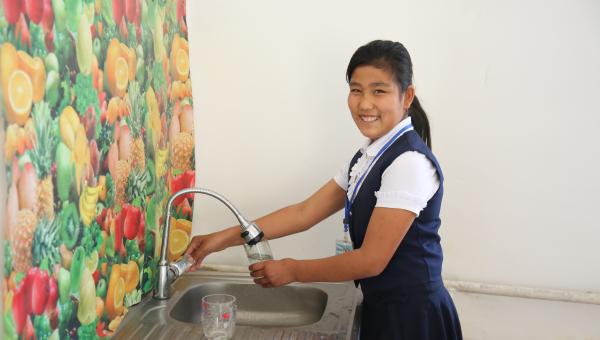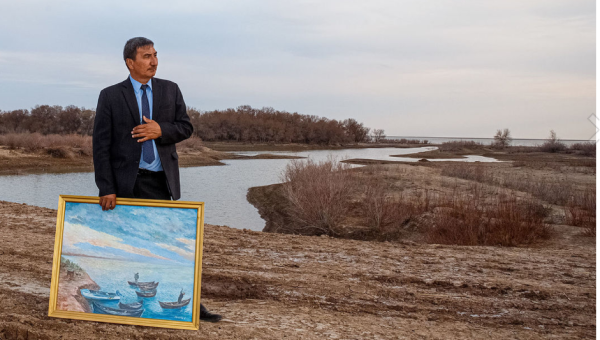
Environment and Climate Action
The Environment and Climate Action
Uzbekistan’s increasing population and urbanization require a more sustainable use of natural resources and an end to unsustainable consumption and production patterns. The country is particularly vulnerable to the consequences of climate change, and therefore, it is essential to decarbonize its industrial, agricultural, and transport sectors while adapting to new realities. Uzbekistan has one of the world's highest energy intensities, meaning the cost of converting energy into GDP is relatively high. Inefficient energy use costs the country around 4.5 percent of its GDP annually. With 80 percent of its water coming from outside the country, Uzbekistan is vulnerable to water shortages, worsened by climate change. Environmental concerns include land degradation, soil salinization, reduced water quality, wind and water erosion, and decreased productivity of arable land. The poorest segments of the population, who rely on subsistence agriculture in arid regions, are particularly vulnerable to extreme weather events and prolonged droughts associated with the changing climate. The disappearance of the Aral Sea serves as a reminder of the importance of sustainable water management and resource use.
The Government of Uzbekistan has been making efforts to balance economic growth with environmental protection, recognizing the need to meet present needs without compromising future opportunities. With its rapid economic development in recent years, Uzbekistan aims to effectively protect and sustainably manage its environment for the benefit of future generations.
Scope
To support the Government of Uzbekistan in its mission to promote sustainability, UNDP’s Environment and Climate Action Cluster is focused on the following:
- Supporting Uzbekistan in expanding its Nationally Determined Contribution (NDC) by mobilizing partners from the UN, Multilateral Development Banks, and the private sector to facilitate financial flows to support NDC priorities and move the country towards carbon neutrality by the target date;
- Facilitating, with support from the Green Climate Fund, the development of specific gender-sensitive climate change adaptation plans for the health, agriculture, water, emergencies, and housing sectors and the most environmentally degraded regions, ensuring adaptation and mitigation responses;
- Supporting the implementation of Uzbekistan’s Strategy for Transition to a Green Economy by 2030, including promoting the enhanced use of renewable energy, improving resource efficiency and crop yields, and avoiding land degradation;
- Supporting the development of new energy efficiency solutions, including investing in low-cost energy-efficient rural housing through blended financing opportunities with Islamic and Asian Development Banks and enhancing access to clean and affordable energy;
- Promoting conservation policies for the effective and sustainable management of natural resources, in line with the 2019-2028 National Strategy on Biodiversity Conservation;
- Advocating for sustainable ecosystem management and the preservation and regeneration of mountain ecosystems, wetlands, and desert ecosystems in the Aral Sea region.
- Addressing inefficient agricultural practices that pose severe threats to rural livelihood sustainability in the Aral Sea region (jointly with the EU and the Ministry of Agriculture), factoring in the economic value of water in national policies, exploring market-based incentives, and contributing to an inclusive transition to a ‘green’ economy;
- Supporting national partners (Emergency Situations, Uzhydromet, and regional khokimiyats) in implementing the Sendai Framework for Disaster Risk Reduction through establishing gender-sensitive early-warning systems for climate-induced hazards;
- Innovating integrated solutions in the Aral Sea region through the introduction of a multifaceted approach to addressing long-standing challenges, including through systems design, data and analytics, alternative financing, and integrated policies; and
- Supporting the efforts of the Karakalpakstan Council of Ministers, Ministries of Investment and Trade, Innovation, Environment and others to transform the Aral Sea Region into a Zone of Ecological Innovation and Technology.

 Locations
Locations



